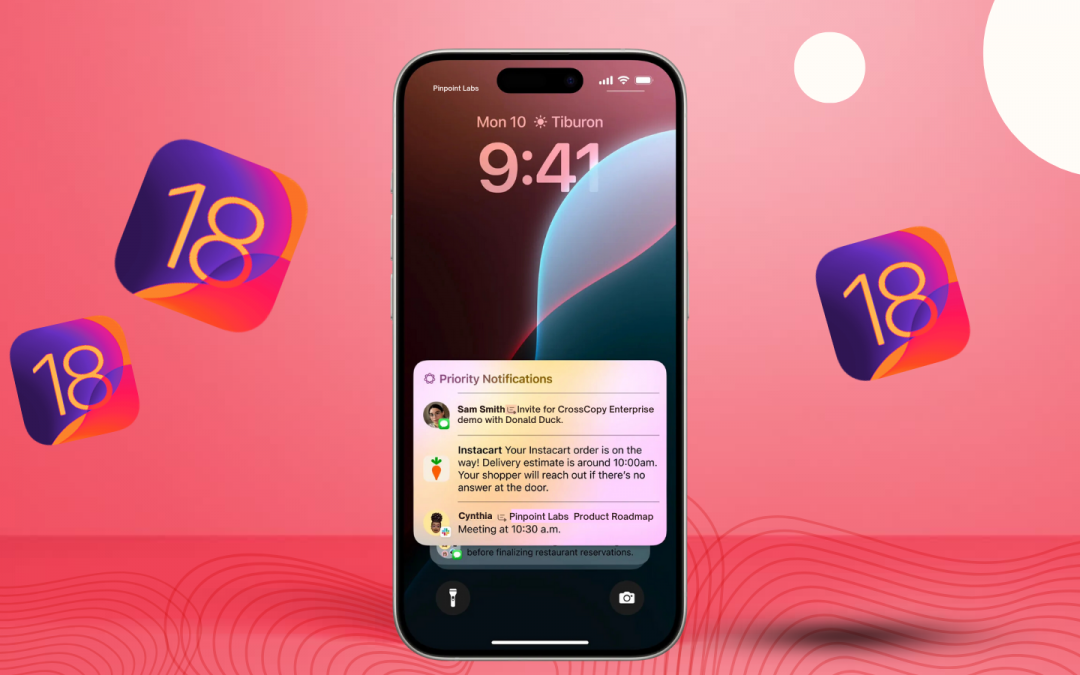With each iOS update, new features and system changes directly impact the world of eDiscovery and digital forensics. Apple’s iOS 18 is no exception, introducing features that could streamline or complicate how professionals collect, process, and review digital evidence. Below, we explore some key updates in iOS 18, including RCS messaging support, and how these features could affect the eDiscovery and digital forensics landscape.
RCS Messaging Support: A Game-Changer for Message Collection
One of the most significant changes in iOS 18 is Apple’s long-awaited adoption of RCS (Rich Communication Services) messaging. As a modernized successor to SMS, RCS supports features like media-rich attachments, read receipts, typing indicators, and end-to-end encryption. This advancement bridges the gap between iMessage and Android users, making cross-platform communication more seamless.
For eDiscovery professionals, RCS brings both opportunities and challenges:
-
- Increased Data Volume: Its support for high-resolution media files and rich media attachments will increase message collections’ data payloads. This may require larger storage solutions and more efficient processing methods for large-scale collections.
- Metadata and Encryption Considerations: RCS introduces new metadata elements, such as read receipts, which can offer crucial insights into investigations. However, the end-to-end encryption in RCS messages adds a layer of complexity in forensics, potentially limiting the amount of data that can be easily retrieved from a device.
- Cross-Platform Complications: As RCS is widely supported across Android devices, the ability to capture RCS data across both iOS and Android devices is key. However, professionals must ensure their collection tools are up-to-date and capable of handling this new message format.
iMessage Enhancements
While RCS is the major update, iMessage also received new functionalities in iOS 18 that impact collection efforts.
-
- Message Editing and Deletion: iOS 18 allows users to edit and unsend messages within specific time windows. From a forensic standpoint, this introduces the need for real-time capture of data to avoid losing crucial edits or deletions before they’re collected. Tools that track these changes and log different versions of the same message become more important for defensibility.
- Expanded Shared Content in iMessage: iOS 18 enhances sharing links, media, and files directly within iMessage conversations. As with RCS, this increases the amount of data tied to a conversation, which could be vital for investigations that involve shared content or context.
Enhanced Security and Privacy Features
Apple continues to double down on privacy and security in iOS 18, introducing measures that could affect how data is collected from devices:
-
- App Privacy Reports: iOS 18 provides detailed privacy reports about apps that access sensitive data, like messages and location. These reports are helpful in investigations, offering insights into third-party app behavior and potential privacy violations.
- Locked Message Backups: Apple’s shift towards encrypted cloud backups, particularly in iCloud, means that forensic experts may find it more difficult to access device backups unless legal measures are in place, such as subpoenas. Encrypted backups limit what can be retrieved unless the proper credentials or court orders are obtained.
iCloud and Third-Party App Collections
iCloud collections have always been a challenge for digital forensics professionals. With iOS 18, Apple has introduced:
-
- Granular iCloud Backups: New settings in iOS 18 allow users to manage what data is backed up to iCloud more precisely. For forensic professionals, certain types of data, such as specific message threads or app data, may be excluded from cloud backups. A more focused approach to cloud-based collections is necessary, particularly for investigations requiring completeness and defensibility.
- Third-Party Messaging Apps: Apps like WhatsApp, Signal, and Telegram remain heavily encrypted and challenging to collect. With iOS 18’s emphasis on privacy, end-to-end encryption in these apps will likely be even more robust, requiring forensic experts to rely more on custodian cooperation and permissions for targeted collections.
iOS 18’s changes require that digital forensics tools evolve to keep up with the new data formats and security features. Tool developers must ensure compatibility with RCS, update iMessage functionalities, and enhance iCloud privacy features to avoid gaps in collections. Legal professionals must also stay informed about these changes to maintain defensibility in court.
The introduction of RCS messaging in iOS 18 is a significant shift for eDiscovery and digital forensics. While the expanded data availability provides new opportunities, the complexity of encryption, metadata, and larger data volumes also demands advanced tools and methodologies. Keeping collection strategies updated in light of these changes ensures thorough and defensible results, allowing professionals to stay ahead in an increasingly privacy-conscious world.

